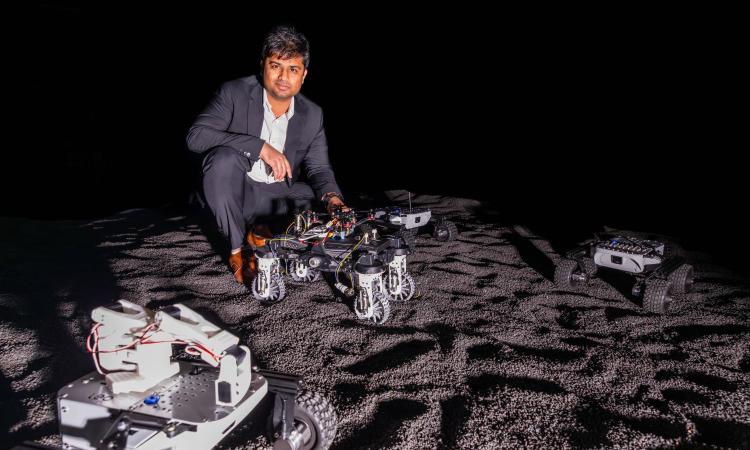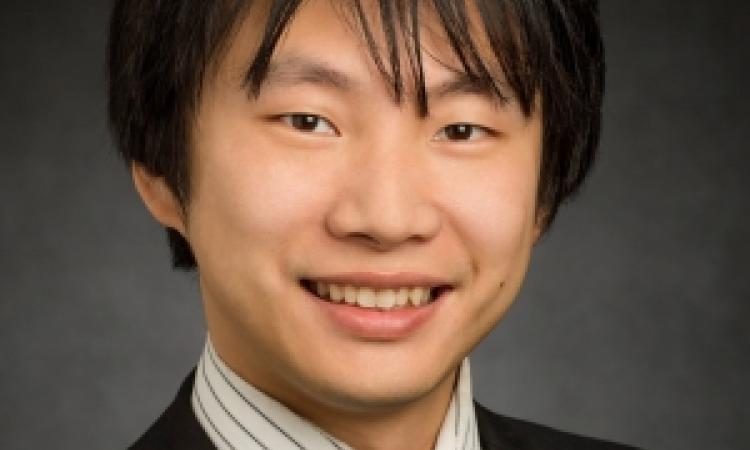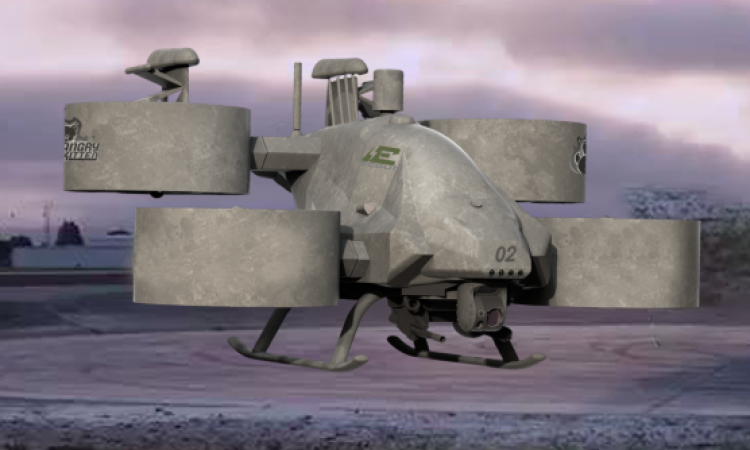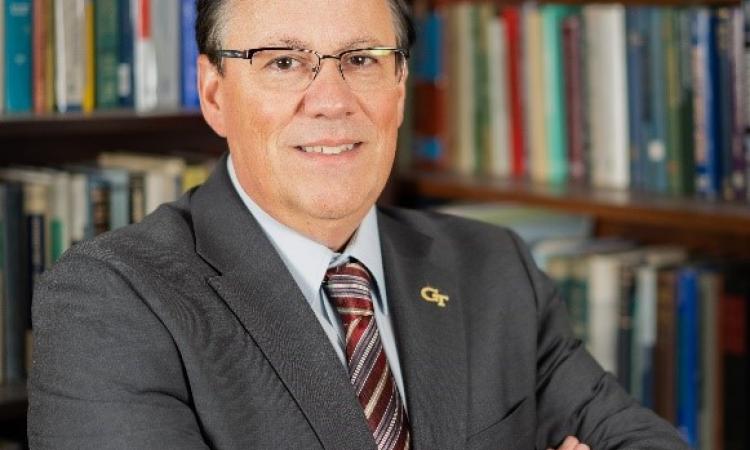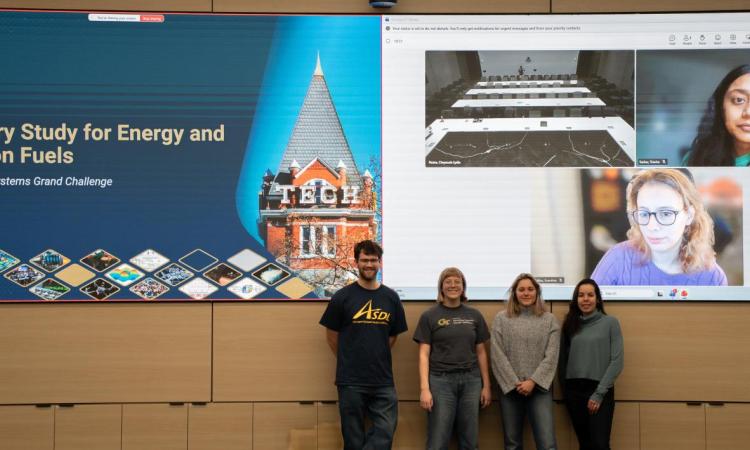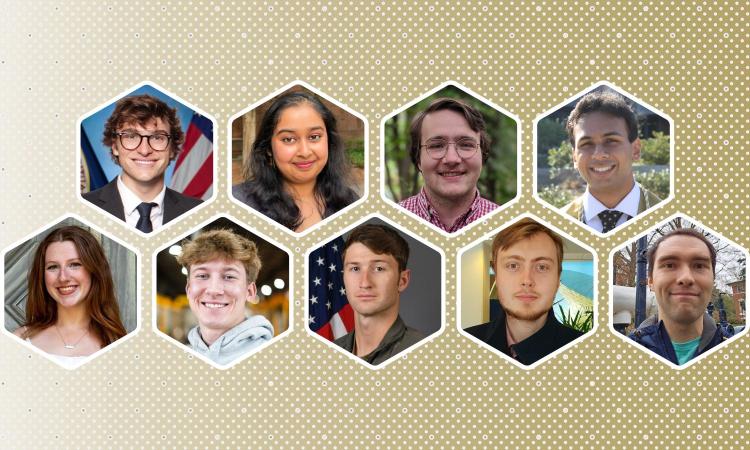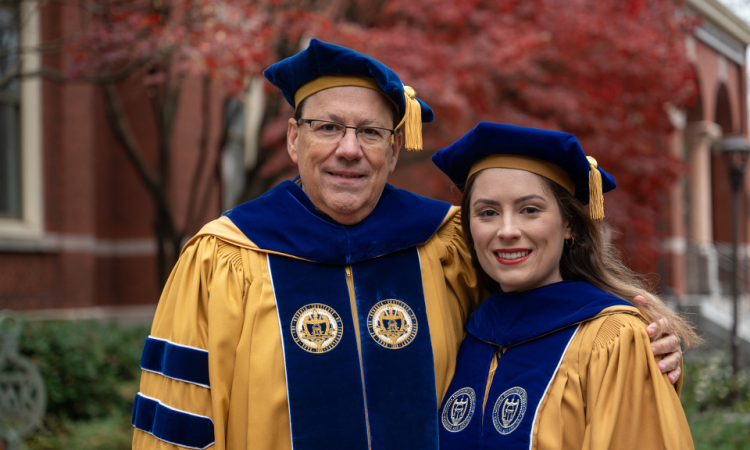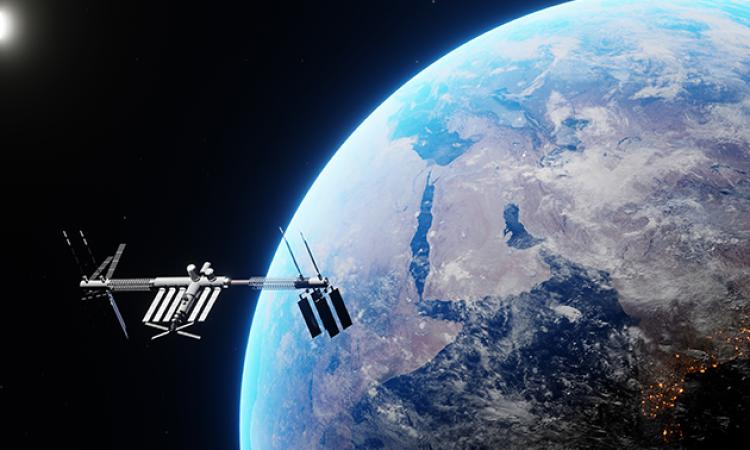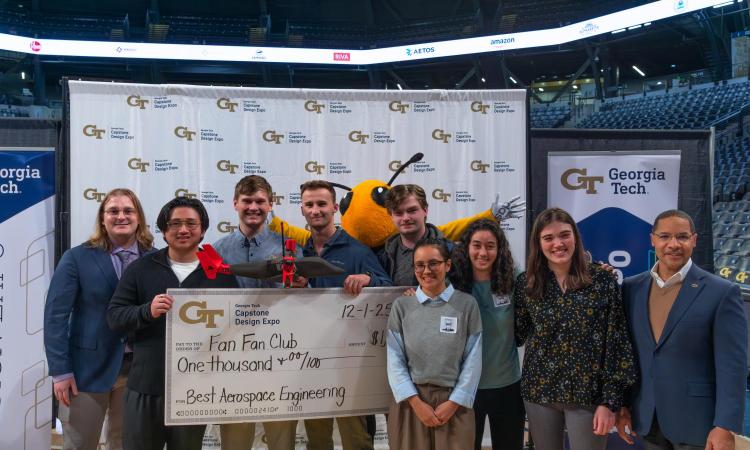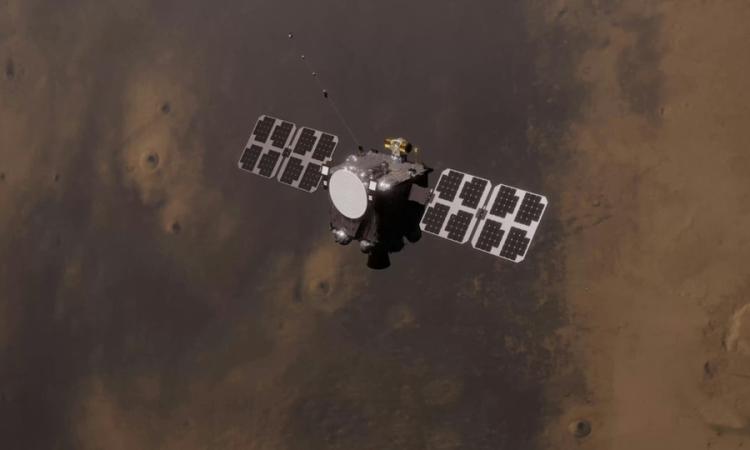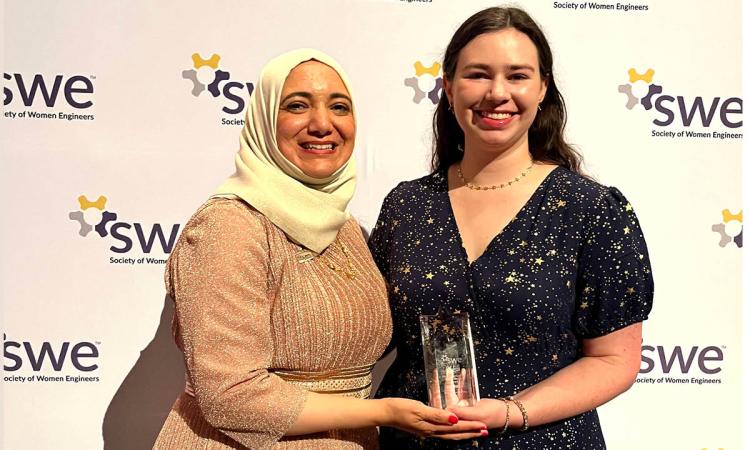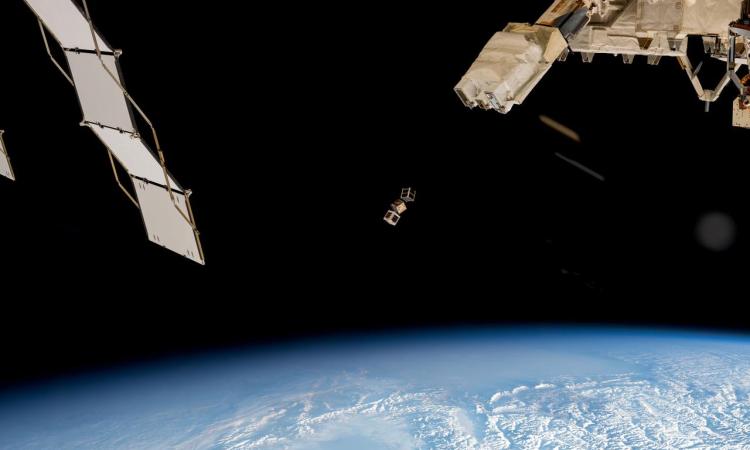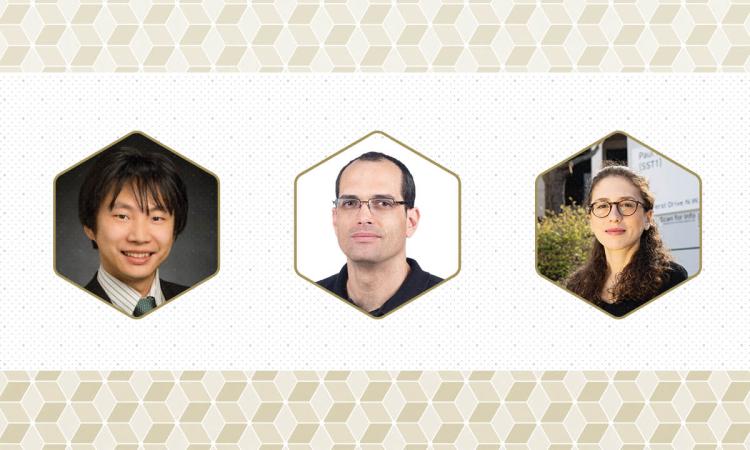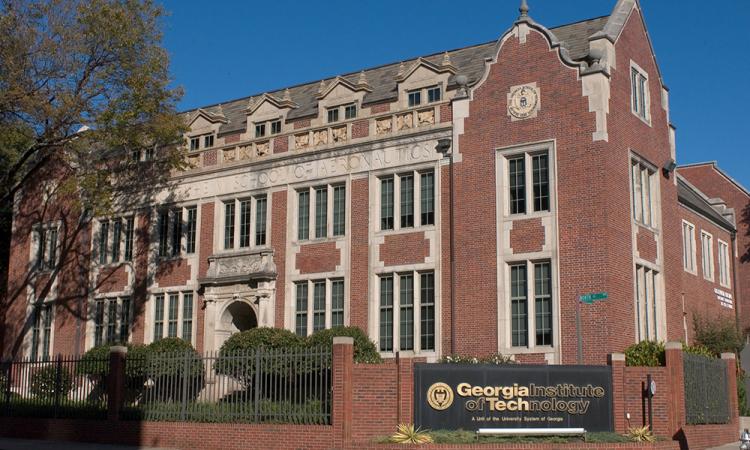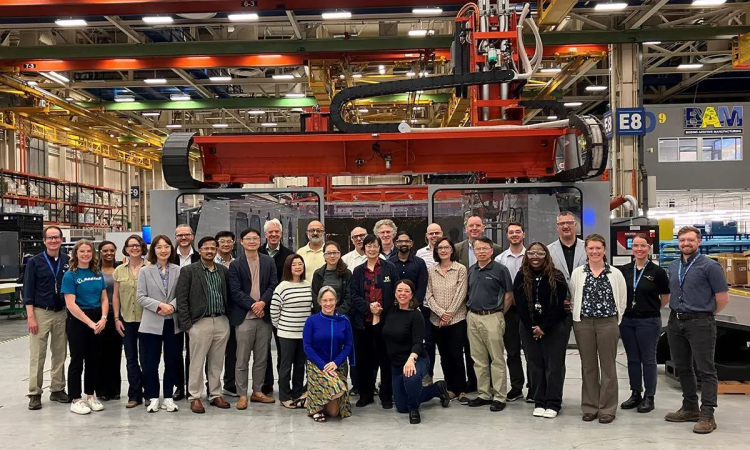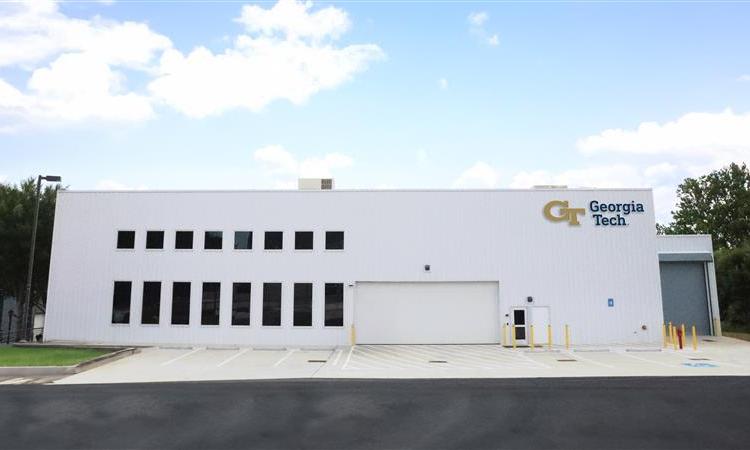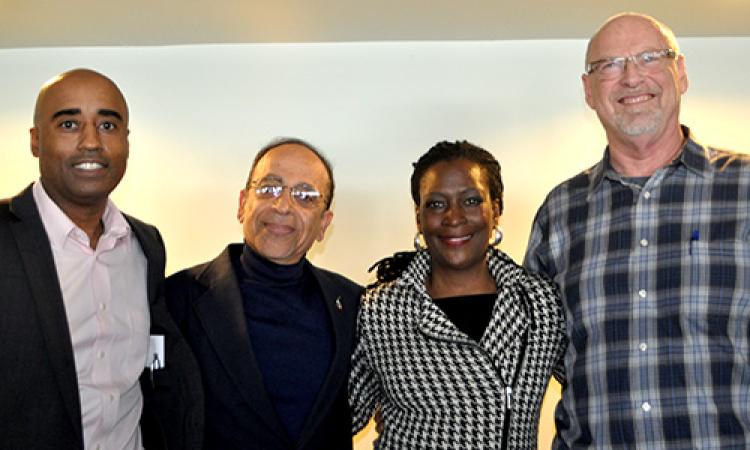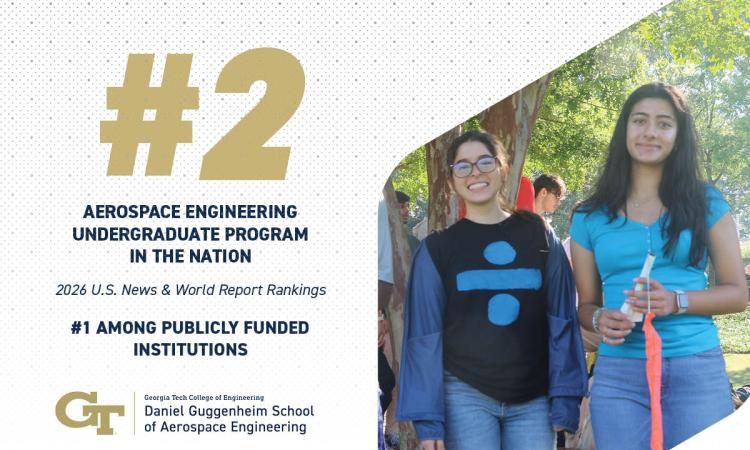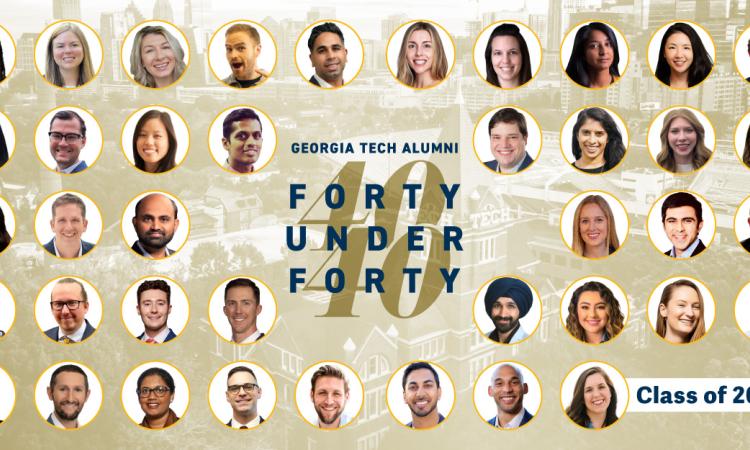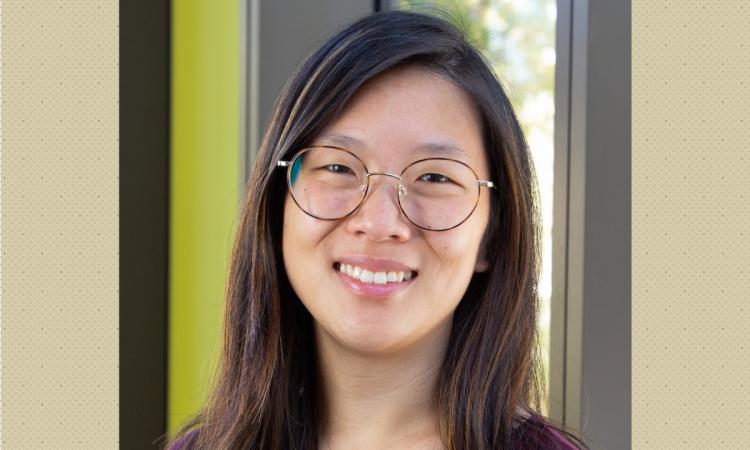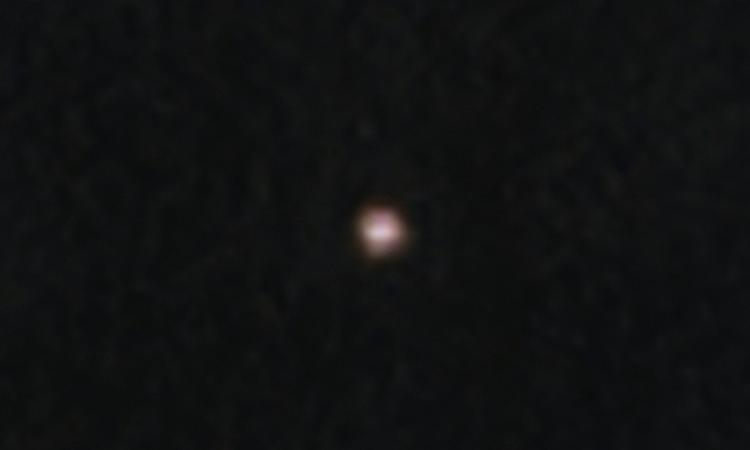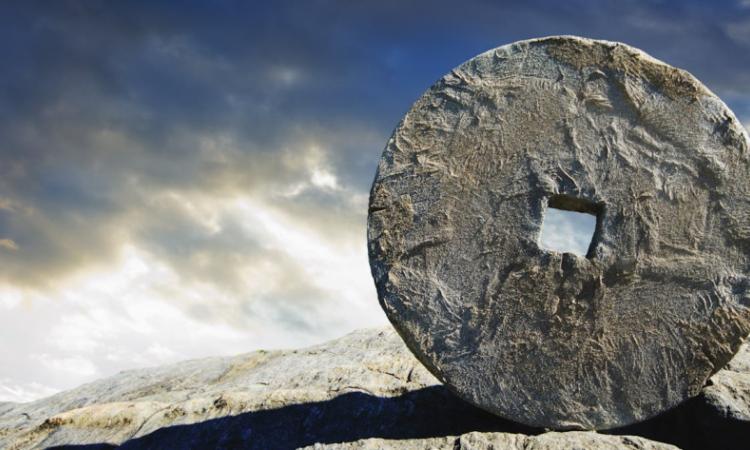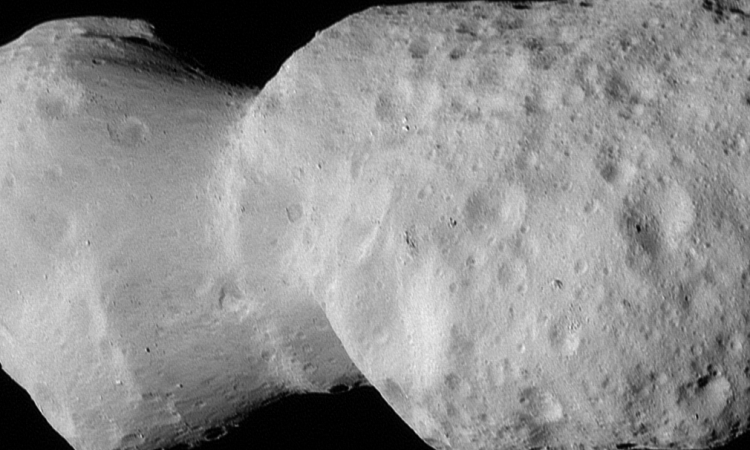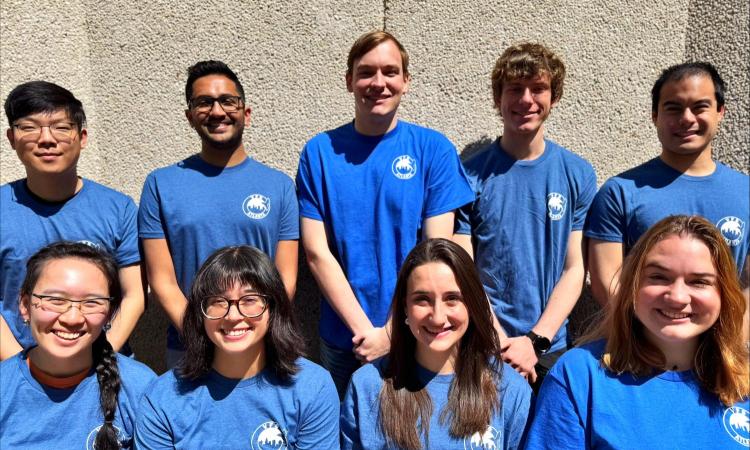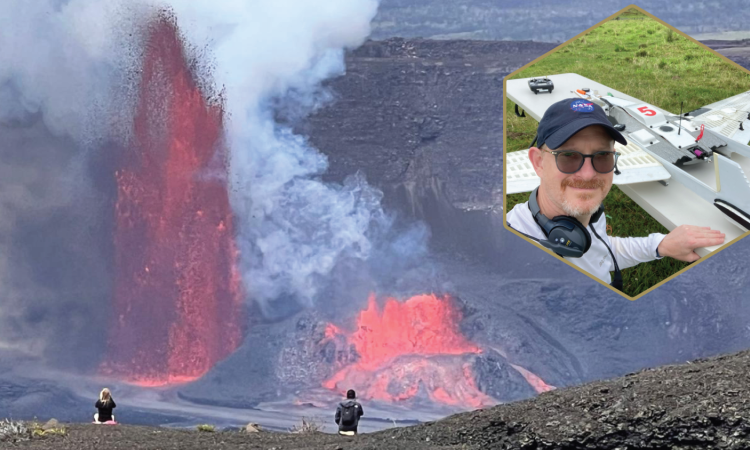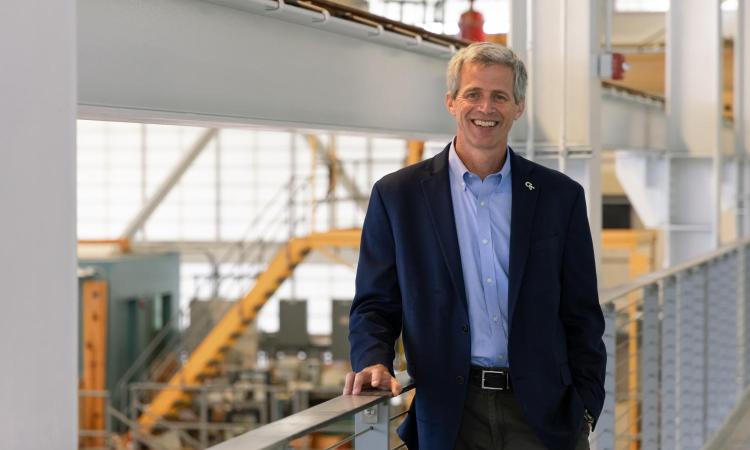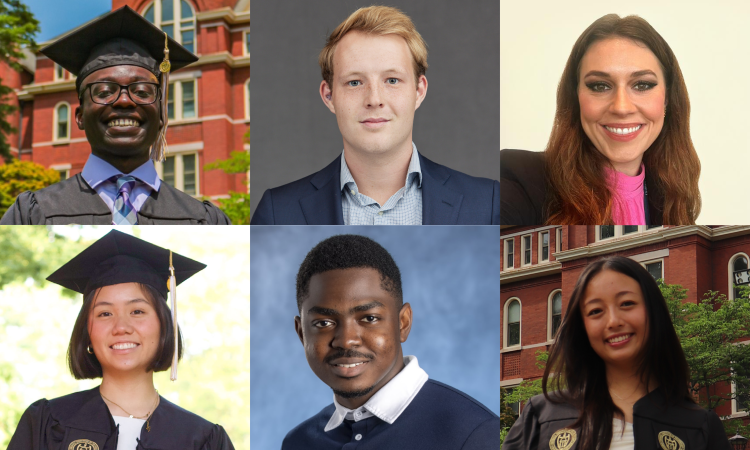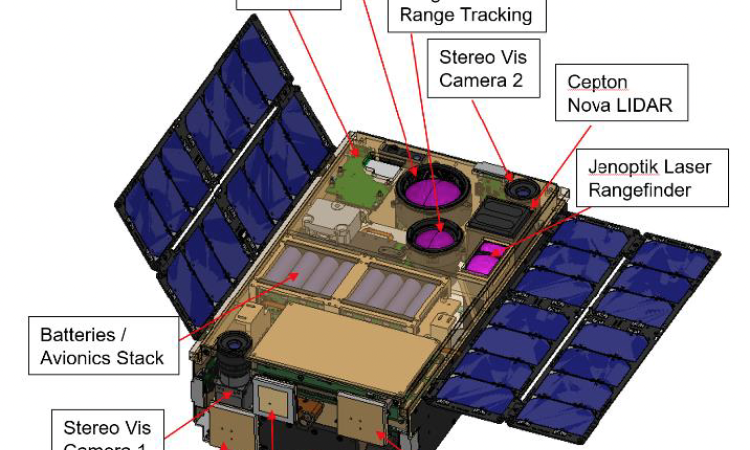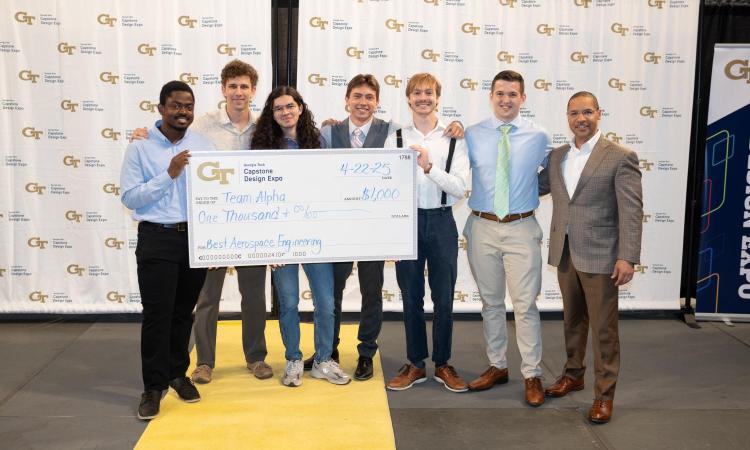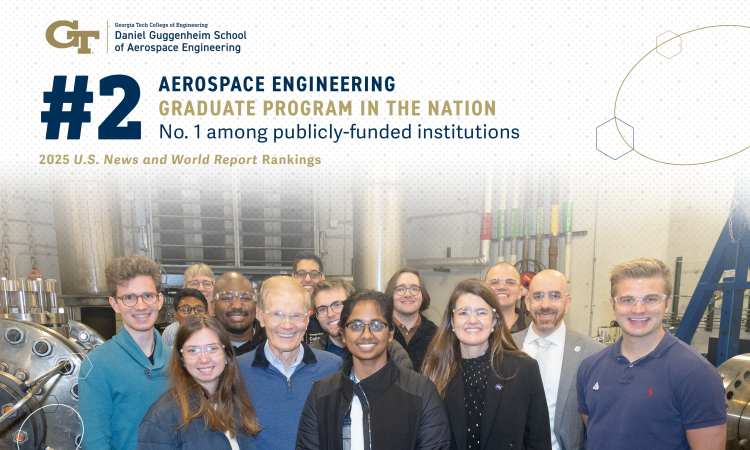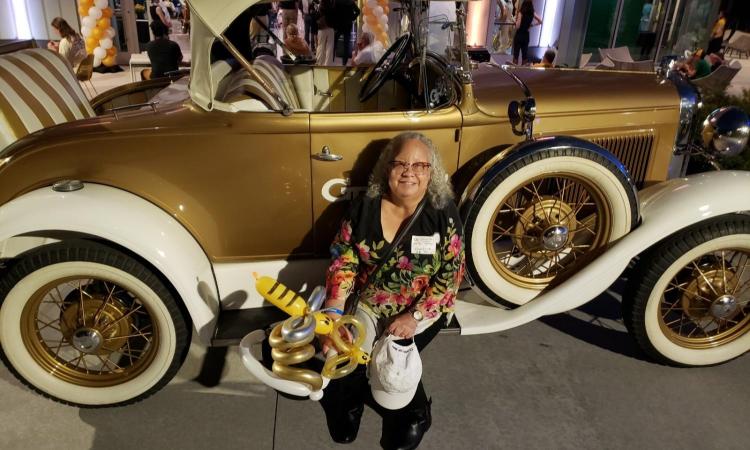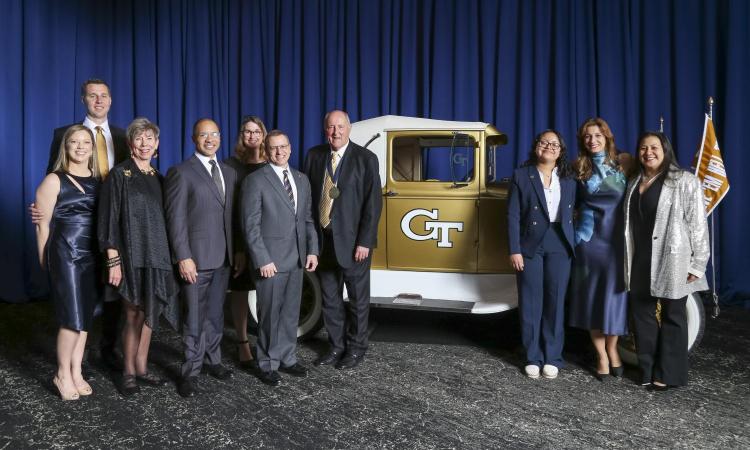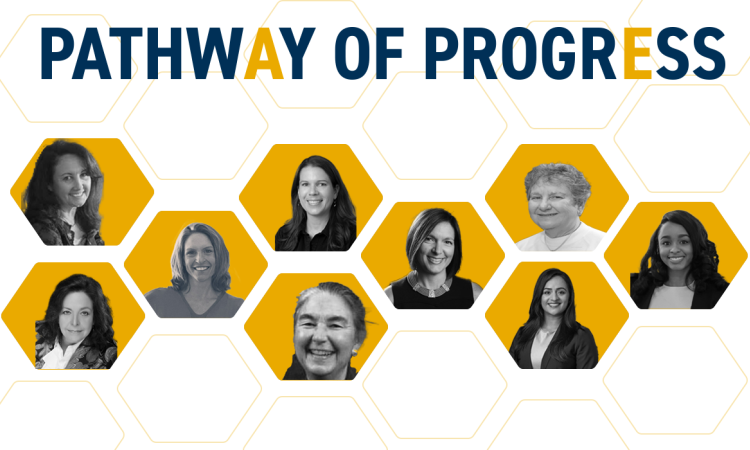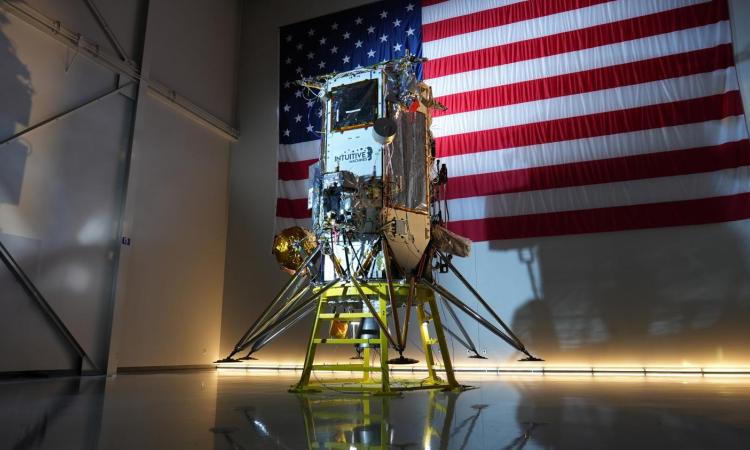News
Aerospace Robotics Lab Simulates the Moon to Advance NextGen Space Robotics Research
Aerospace engineers recreate the moon’s difficult terrain to help next-gen space robots work together, explore, and build on the lunar surface.
Christos Athanasiou to Receive 2025 Eshelby Mechanics Award for Young Faculty
The award recognizes early-career researchers who’ve made impactful contributions to the field of mechanics.
Koki Ho Honored with Emerging Astrodynamicist Award
The award recognizes early career researchers advancing space mission design and contributing to the astrodynamics community.
Georgia Tech Partners with RMS Aerospace to Advance Autonomous UAV Technology
e-Scout, is a first-of-its-kind AI-enabled tactical drone designed to address critical gaps in U.S. military support.
Dimitri Mavris Elected to AIAA’s Board of Trustees
A longtime leader in aerospace research and service to the aerospace profession, Mavris will help guide AIAA’s strategic direction and strengthen collaboration as part of his three-year term.
Maaz Dossa Inducted into Aviation Week’s 20 Twenties Class of 2026
The AE undergraduate reflects on his journey through Georgia Tech and how he wants to impact the aerospace industry.
U.S. Endowment for Forestry and Communities and the Guggenheim School Collaborate through Grand Challenge Program
Project seeks to understand social, environmental and economic impacts of paper mill closures while uncovering new opportunities for resilient growth.
60 Years Later, Finally Another Yellow Jacket in the Family
Peter Petrecca has been the lone Georgia Tech engineer in his family for decades. That changes in December when his grandson graduates exactly 60 years after Petrecca finished his degree.
From Galaxy to Ground: How Space Research Shapes Everyday Life
Georgia Tech space researchers’ work benefits Earth technologies, too.
AIAA Names Senior Research Engineer Jimmy C. Tai as Associate Fellow
Tai is recognized for advancing systems design and optimization research of propulsion systems in rotorcraft.
Team Fan Fan Club Took Off with the Highest Honor in Aerospace Engineering at Capstone
The winning aerospace project puts an electric spin on urban air mobility.
NASA Goes On an ESCAPADE – Twin Small, Low-Cost Orbiters Will Examine Mars’ Atmosphere
Envision a time when hundreds of spacecraft are exploring the solar system and beyond. That’s the future that NASA’s ESCAPADE, or Escape and Plasma Acceleration and Dynamics Explorers, mission will help unleash.
Jenna Salmen Receives SWE’s Prestigious Graduate Student Award
The Society of Women Engineers recognizes AE graduate student for her leadership, innovation, and academic achievements.
Joint Venture Marks a New Era in Aerospace and Policy Research
Together, the School of Aerospace Engineering and the School of International Affairs will conduct research to encourage smarter space policy decisions.
After 55 Years, the Longest Serving Professor in AE History Retires
Sathyanaraya Hanagud taught thousands during his career while helping make military aircraft safer, developing significant national collaborations led by Georgia Tech, and forming lifelong relationships with students he mentored and advised.
AE Celebrates Faculty for Bolstering Student Success Beyond the Classroom
Koki Ho, Dan Lev, and Cristina Riso were honored with Outstanding Research Advisor and Support Author Awards for their commitment to mentoring and collaborative scholarship.
Alumnus Rohan Kachru Joins NobleReach Scholars
The recent AE graduate will begin a spacecraft engineering role at Rocket Lab as part of the 2025 cohort.
Boeing Invites 3 Tech Researchers as Visiting Professors
The group spent two weeks at Boeing facilities connecting their research and teaching with real-world aerospace industry challenges.
Georgia Tech Opens New Aircraft Prototyping Laboratory
Georgia Tech celebrates the opening of its new Aircraft Prototyping Laboratory, a facility dedicated to advancing research in electric and autonomous flight in collaboration with academic, government, and industry partners.
Aerospace Engineering Ranks No. 2 in 2026 Undergraduate Rankings
The U.S. News and World Report ranks the AE School as No. 1 among publicly funded institutions.
New Research Enhances Oxygen Production for Space Missions
Professor Álvaro Romero-Calvo and collaborators have created a simpler, more sustainable system to make oxygen in space — using magnets.
Three AE School Alumni Chosen for 40 Under 40 Honor by Georgia Tech Alumni Association
Kyle Blond, Ronnie Foreman and Adam C. Weiss recognized for their impact and accomplishments in aerospace.
Elizabeth Qian Lands NSF’s Prestigious Early Career Award
The award will advance Qian’s computational research and education mission.
How Do Scientists Calculate the Probability That an Asteroid Could Hit Earth?
When scientists spot an asteroid whose trajectory might take it close to Earth, they monitor it frequently and calculate the probability that it might collide with our planet.
Tim Lieuwen Receives ASME Medal, the Society’s Highest Honor
AE faculty member and ME alumnus recognized for leadership in clean energy, propulsion, policy.
National Report Urges FAA to Overhaul Air Traffic Controller Hiring and Training
Aerospace engineering professor Karen Feigh cowrote a National Academies review of a national shortage that impacts 45,000 daily commercial flights.
How Was the Wheel Invented?
Computer simulations reveal the unlikely birth of a world-changing technology.
Christos Athanasiou Receives the ASME Orr Early Career Award
AE Professor honored for his work in fracture of sustainable materials and structures research.
Unraveling the Mysteries of the Universe One Asteroid at a Time
Masatoshi Hirabayashi will utilize data from ancient asteroids to gain a deeper understanding of the history of space.
Soaring to Success: Georgia Tech AE Students and Faculty Honored with Prestigious 2025 Awards
Celebrating the many aerospace engineering students and faculty awarded scholarship and top accolades during Spring 2025.
Preparing to Study Venus’ Clouds
As Rocket Lab prepares to launch a mission to Venus next year, a multidisciplinary research team led by Georgia Tech braved an erupting volcano recently to test an instrument custom-built to explore Venus’ clouds and look for signs of organic chemistry.
ASME Honors Woodruff School Alumnus Tim Lieuwen with Dedicated Service Award
The American Society of Mechanical Engineers (ASME) has announced Tim Lieuwen, alumnus of the George W. Woodruff School of Mechanical Engineering and an ASME Fellow, as a recipient of its 2025 Dedicated Service Award.
What's Next for the Class of 2025 as They Navigate the Future
The School of Aerospace Engineering was an awesome proving ground for these engineers.
John Christian Appointed Associate Chair for Graduate Programs at AE School
AE Professor will oversee master’s and doctoral programs at Georgia Tech's School of Aerospace Engineering
Georgia Tech CubeSats Push the Limit of Small Satellite Technologies
A pair of small satellites are slated to improve satellite tracking and autonomy.
Team Alpha Captures Top Aerospace Engineering Prize at Capstone Design Expo
The six-person team conceptualized a highly efficient aircraft for homeland defense.
AE Students Land Prestigious Space Policy Internships and Scholarships
Polina Verkhovodova selected into the inaugural class of Matthew Isakowitz Commercial Space Scholars.
Georgia Tech Researchers Pioneer Eco-Friendly Building Materials for Earth and Mars
A new study explores reconfigurable, sustainable construction materials that could transform how we build on this planet — and beyond.
AE School Remains No. 2 in 2025 Graduate Rankings
The U.S. News and World Report ranks the AE School as No. 1 among publicly-funded institutions.
AE Alumna Kathryn Engelhardt: Shattering Glass Ceilings with Intellect and Resilience
The AE pioneer reflects on the good times at Georgia Tech.
Outstanding AE Alumni Honored at College of Engineering Alumni Awards
Charles H. Gaylord, Jacob M. Kwasnik, and Gary Weissel were honored for their contributions to aerospace engineering.
Georgia Tech to Collaborate on $6.7 Million NASA University Leadership Initiative
Vamvoudakis and researchers will enhance Advanced Air Mobility safety.
Nine AE Alumnae Honored During the Pathway of Progress Grand Opening
Georgia Tech commemorates the achievements of its women with a new permanent art installation on campus.
Four AE Students Earn Patti Grace Smith Fellowships
Khalil Harruna, Lauren Leitch, Marquel Ollivierre, and Mersimoy Regassa are soaring to new heights this summer with exciting aerospace internships.
New Algorithms Developed at Georgia Tech are Lunar Bound
AE researchers have developed new algorithms to help Intuitive Machine’s lunar lander find water ice on the Moon.
